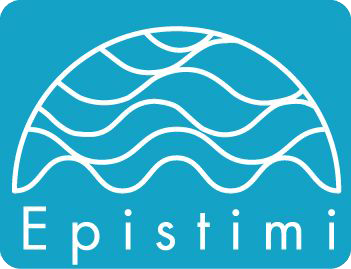The best advice we ever got
We hope this advice will help our readers to reflect on additional ways to expand their professional ‘toolbox’ of good ideas, useful actions and experiences.
By Patricia A. Maurice and Janet G. Hering
30 April 2024, DOI: 10.5281/zenodo.10987056
As students and young professionals, we were extremely fortunate to work with a number of world class scientists and engineers who were incredibly kind and generous. One of the best gifts they gave us was wise advice that has stuck with us over the decades. We ‘pay this forward’ by sharing some of this advice with our readers. Feel free to add your own advice and share as you see fit. But do keep in mind the caveat that one should be careful handing out and accepting advice. Remember that each person is unique and we can never know the future.
We have parsed this advice into several categories: personal wellbeing, professional success, management, and leadership. We also each added our current ‘favorite’ published book of advice.
Tips for personal wellbeing
· Health and family come first. This has been written about many times but it can be easy to convince yourself that your career is more important when it isn’t.
· Have fun along the way so if something doesn’t work out you will have more happy memories than regrets.
· Watch your back, especially as a woman. For more detailed advice, see our post on dealing with dishonest colleagues [1].
Tips for professional success
· The key to success is to just keep showing up. Keep putting one foot in front of the other.
· Look at each experience as a means of adding a new tool to your toolbox that you can pull out when needed at some future time.
· You can’t be a scientist if you are afraid of making mistakes. Fear kills innovation. On the other hand, engineering is not as forgiving because bad engineering can cost lives.
· No matter your position in academia, make sure that you set aside time for writing. Know what works best for you in terms of when and how much time to set aside.
Tips for management
· When you are in a meeting, focus on the people who are present and deserve your undivided attention.
· Get important things in writing and keep copies.
· Be deliberate in decision making. Learn about tools that you might find useful, like decision tree or GAP analyses.
Tips for leadership
· A good leader focuses not on rehashing problems but on finding solutions. See also our post on the joys of being a senior women leader [2].
· A good academic leader solves problems, opens opportunities and then gets out of the way and lets good people do their jobs.
· When negotiating for a leadership position, bargain hard to ensure you have the resources to be personally successful and for the success of your organization. Your best opportunity for getting new resources is before you accept the position.
· If you accept a leadership position stay marketable in case the position does not pan out. If you move universities for a leadership position, make sure you would be comfortable in your home department.
Like many others, we received the advice to think strategically and plan five to ten years in advance at all stages of your career. While we appreciate this advice, we also recall President Dwight Eisenhower’s famous motto “Plans are nothing, planning is everything.” Since we can never know the future, we should always focus on evaluating pros and cons and potential consequences of different actions.
Our two current ‘favorite’ advice books
· Essentialism: The Disciplined Pursuit of Less (2014) by Greg Mckeown, Crown Business
· A Leadership Guide for Women in Higher Education (2021) by Marjorie Hass, Johns Hopkins University Press
In closing, here are a few questions to stimulate further thought and discussion:
· What was the best advice you ever got?
· Did you ever get advice that turned out to be bad advice for you?
· What advice do you wish you had gotten back when you were a student or a young professional?
Notes, links, and references
[1] https://www.epistimi.org/blog/liar-liar-campus-on-fire-how-to-cope-with-dishonest-colleagues
[2] https://www.epistimi.org/blog/the-joys-of-being-a-senior-woman-leader
[3] https://gregmckeown.com/books/essentialism/
[4] https://www.press.jhu.edu/books/title/12471/leadership-guide-women-higher-education

